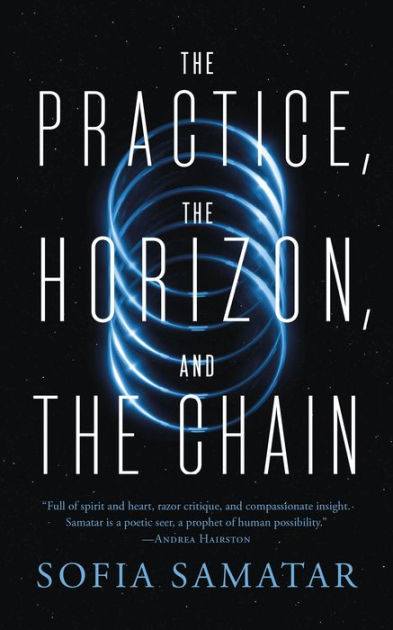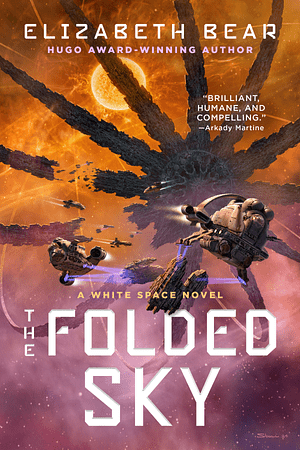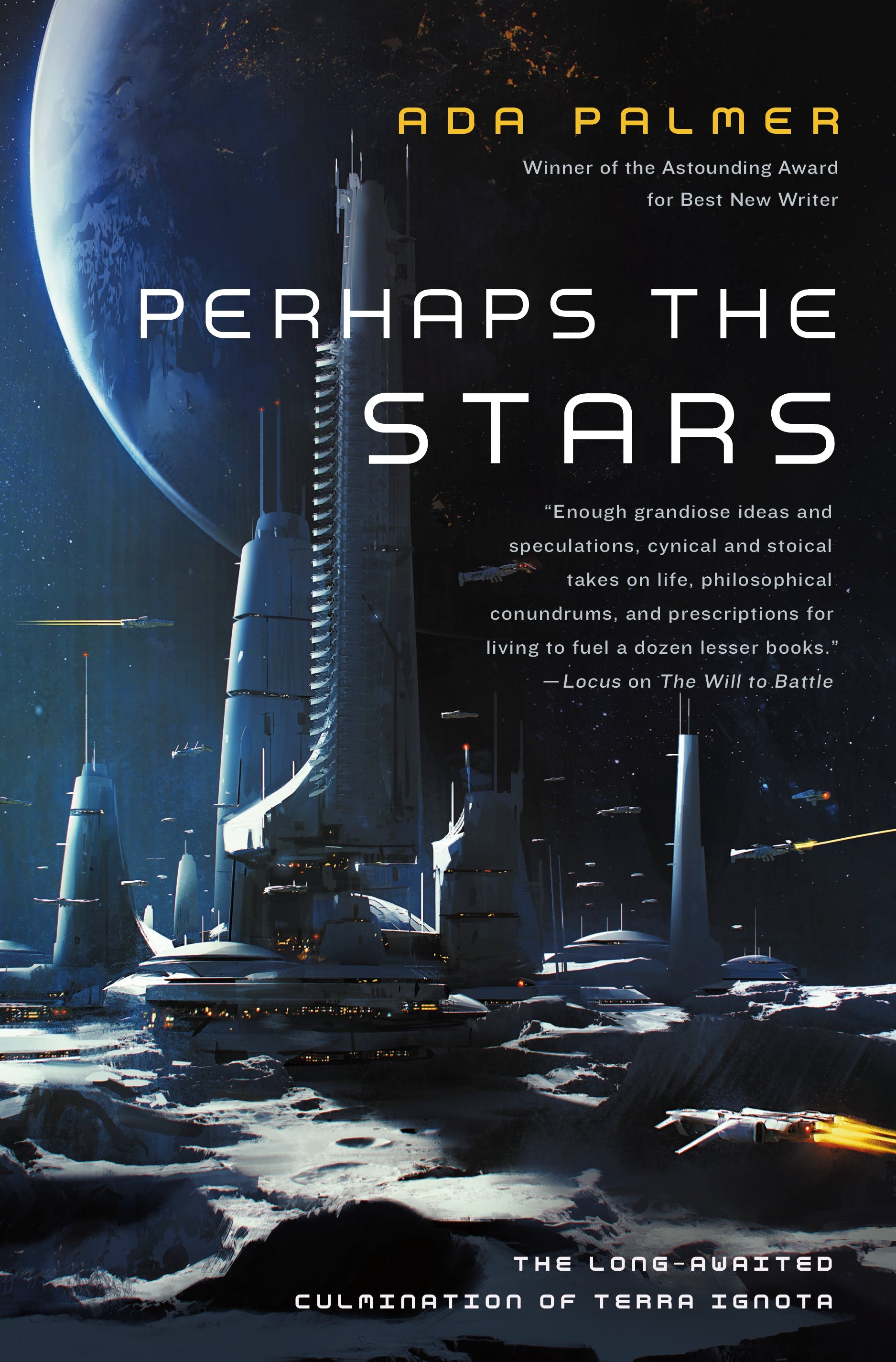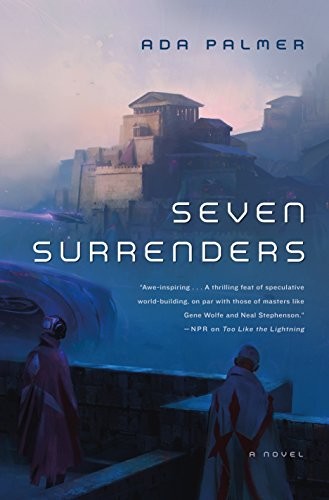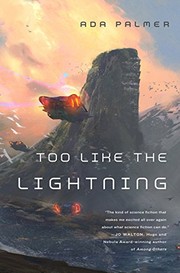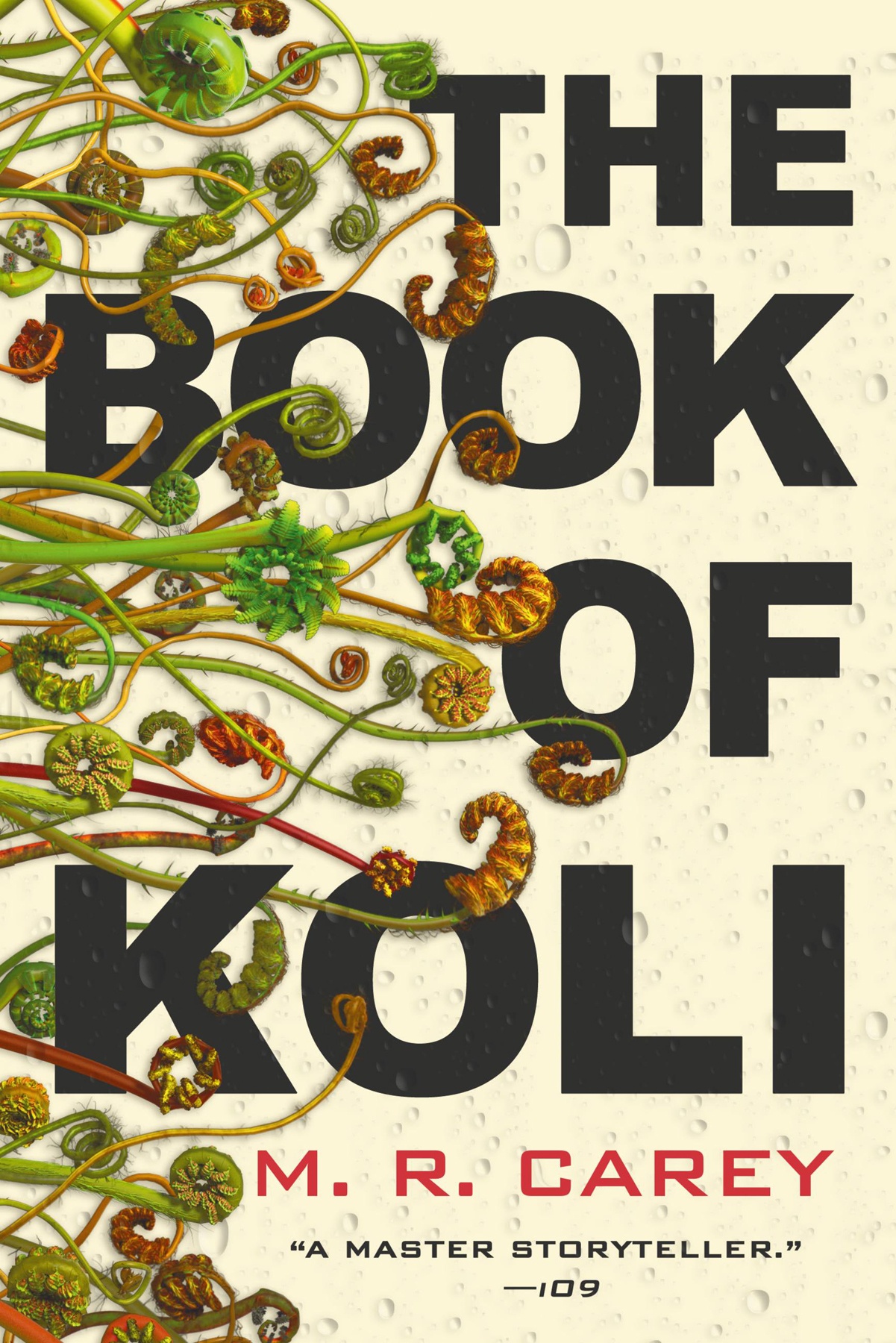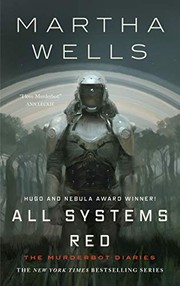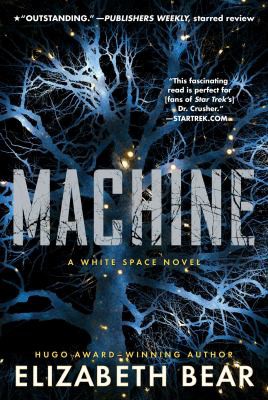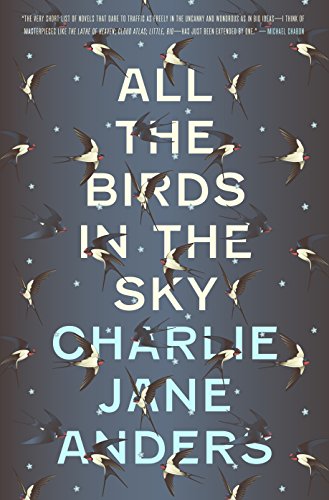@joachim@lire.boitam.eu nobody expects the Spanish Monarchy
User Profile
Hello I'm @Dee@fedi.underscore.world. I run this instance, and I'm currently its only user.
they/them
This link opens in a pop-up window
Dee 📖 (book aspect)'s books
User Activity
RSS feed Back
Dee 📖 (book aspect) replied to joachim@lire.boitam.eu's status
Content warning general Terra Ignota series spoilers
Dee 📖 (book aspect) commented on Will to Battle by Ada Palmer
"The long years of near-utopia have come to an abrupt end. Peace and order are …
Content warning general Terra Ignota series spoilers
come to the world of 2454, we got:
- An empire with an emperor (and they're Freemasons, somehow?)
- Charitable NGO except it's actually a government, so more of a GO
- Instagram influencer universal democracy
- The European Union
- The sociology department
- Longtermists with protofascists tendencies
Also available:
- "I love the system" option
- "I can't be bothered" option
- Sword right libertarianism
- Childhood
- Slavery
Dee 📖 (book aspect) finished reading Seven Surrenders by Ada Palmer (Terra Ignota, #2)
Dee 📖 (book aspect) finished reading Too Like the Lightning: Book One of Terra Ignota by Ada Palmer
Dee 📖 (book aspect) finished reading The Book of Koli by M.R. Carey
Dee 📖 (book aspect) reviewed Doors of Eden by Adrian Tchaikovsky
This really parallels my universes
3 stars
It's one of those Adrian Tchaikovsky novels that has alternatively-evolved sapient animals in it, but it also has an unexpected amount of queer characters. Tchaikovsky tends to be good at the former, and this book is not an exception; he also handles the latter well enough, though if you are not okay with bigotry exhibited by some of the more contemptible characters being part of the plot, you may want to skip this one.
The novel starts out kind of slow and takes a while to ramp up while you want to scream at the characters to figure it out already. In the middle, it may seem to be a bit predictable, although it does take some interesting twists in the last third, which subverts that impression a bit.
Overall, a fun parallel universe story, if you're into that sort of thing, even if not an exceptional one.
It's one of those Adrian Tchaikovsky novels that has alternatively-evolved sapient animals in it, but it also has an unexpected amount of queer characters. Tchaikovsky tends to be good at the former, and this book is not an exception; he also handles the latter well enough, though if you are not okay with bigotry exhibited by some of the more contemptible characters being part of the plot, you may want to skip this one.
The novel starts out kind of slow and takes a while to ramp up while you want to scream at the characters to figure it out already. In the middle, it may seem to be a bit predictable, although it does take some interesting twists in the last third, which subverts that impression a bit.
Overall, a fun parallel universe story, if you're into that sort of thing, even if not an exceptional one.
Dee 📖 (book aspect) finished reading Doors of Eden by Adrian Tchaikovsky
Dee 📖 (book aspect) rated Fugitive Telemetry: 4 stars
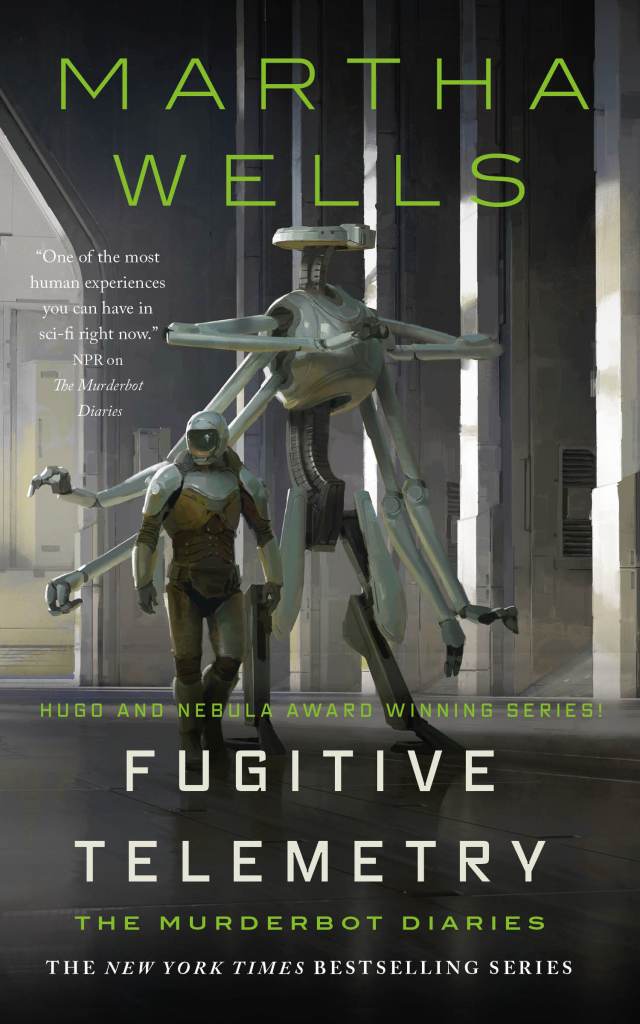
Fugitive Telemetry by Martha Wells (The Murderbot Diaries, #6)
No, I didn’t kill the dead human. If I had, I wouldn’t dump the body in the station mall.
…
Dee 📖 (book aspect) rated Network Effect: 4 stars
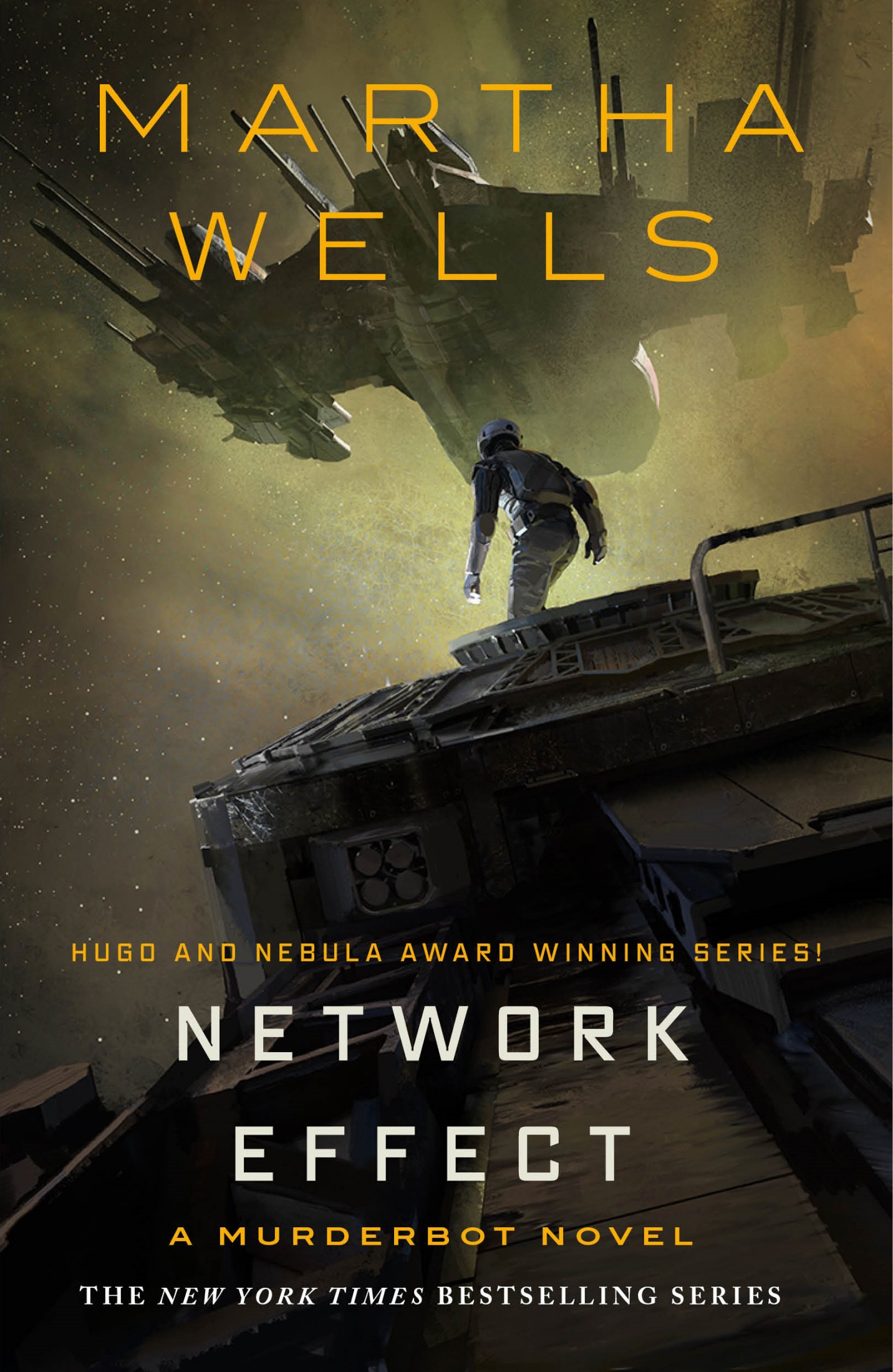
Network Effect by Martha Wells (The Murderbot Diaries, #5)
I’m usually alone in my head, and that’s where 90 plus percent of my problems are.
When Murderbot's human …
Dee 📖 (book aspect) reviewed All Systems Red by Martha Wells (The Murderbot Diaries, #1)
Go Murderbot
4 stars
From the plot alone, this novella would be a bit of perhaps cliche science fiction. What makes it both unique and compelling is that the story being told from the perspective of the "Murderbot" (hence The Murderbot Diaries), a cyborg generally treated by society as a piece of equipment.
Martha Wells's writing does a good job of showing Murderbot's personality, its particular anxieties, its relationships towards humans, and general attitudes towards life. Even if the plot is cliche, Murderbot as a character is the opposite.
From the plot alone, this novella would be a bit of perhaps cliche science fiction. What makes it both unique and compelling is that the story being told from the perspective of the "Murderbot" (hence The Murderbot Diaries), a cyborg generally treated by society as a piece of equipment.
Martha Wells's writing does a good job of showing Murderbot's personality, its particular anxieties, its relationships towards humans, and general attitudes towards life. Even if the plot is cliche, Murderbot as a character is the opposite.
Dee 📖 (book aspect) reviewed Machine by Elizabeth Bear
More better White Space
4 stars
Elizabeth Bear's second White Space novel is, in some ways, better than the first. Once again, the story is told through the eyes of a compelling and complex character. The setting of the novel—a post-scarcity interstellar polity called the Synarche—is once again central to the novel, but the this time the inner workings of the Synarche, the relationship of its various citizens to it, and its flaws are examined in greater detail and from a more internal perspective, which makes the setting more interesting.
The novel suffers from pacing that could be better at times. We get to hear a lot of what the protagonist's thoughts are, but sometimes this feels redundant, with her explaining her already previously stated feelings on the situation multiple times, which does help to establish the stakes and motivations, but past a certain point feels a bit redundant.
Once again, this is an …
Elizabeth Bear's second White Space novel is, in some ways, better than the first. Once again, the story is told through the eyes of a compelling and complex character. The setting of the novel—a post-scarcity interstellar polity called the Synarche—is once again central to the novel, but the this time the inner workings of the Synarche, the relationship of its various citizens to it, and its flaws are examined in greater detail and from a more internal perspective, which makes the setting more interesting.
The novel suffers from pacing that could be better at times. We get to hear a lot of what the protagonist's thoughts are, but sometimes this feels redundant, with her explaining her already previously stated feelings on the situation multiple times, which does help to establish the stakes and motivations, but past a certain point feels a bit redundant.
Once again, this is an entertaining novel akin to the Culture series or Star Trek, in its depiction of a utopian-but-perhaps-flawed spacefaring future, though it is less epic space opera and more character-focused.
Dee 📖 (book aspect) finished reading All Systems Red by Martha Wells (The Murderbot Diaries, #1)
Dee 📖 (book aspect) finished reading Machine by Elizabeth Bear
Nice blend of fantasy and science fiction
4 stars
All the Birds in the Sky is, broadly, a novel about the conflict between science and magic. Less broadly, it's a novel about growing up, love, empathy, hubris, mistakes, and the desire to do good.
The story is told mostly from the perspectives of the novel's two main characters, Patricia and Laurence. The overarching plot of the novel may have some awkward twists, and its resolution may arrive a bit abruptly, but it generally works well anyway, considering the novel's focus on the character's individual experiences, and how their relationship plays into the larger events.
Genre-wise, the novel is a blend of science fiction and fantasy, and tone-wise it is a blend of serious and whimsical. While the plot does go to some dark places, the book's writing tends more towards wistful than grimly dark. The style may seem a bit weird, but it works with a story …
All the Birds in the Sky is, broadly, a novel about the conflict between science and magic. Less broadly, it's a novel about growing up, love, empathy, hubris, mistakes, and the desire to do good.
The story is told mostly from the perspectives of the novel's two main characters, Patricia and Laurence. The overarching plot of the novel may have some awkward twists, and its resolution may arrive a bit abruptly, but it generally works well anyway, considering the novel's focus on the character's individual experiences, and how their relationship plays into the larger events.
Genre-wise, the novel is a blend of science fiction and fantasy, and tone-wise it is a blend of serious and whimsical. While the plot does go to some dark places, the book's writing tends more towards wistful than grimly dark. The style may seem a bit weird, but it works with a story that is overall a bit weird.
Overall, an enjoyable book.
